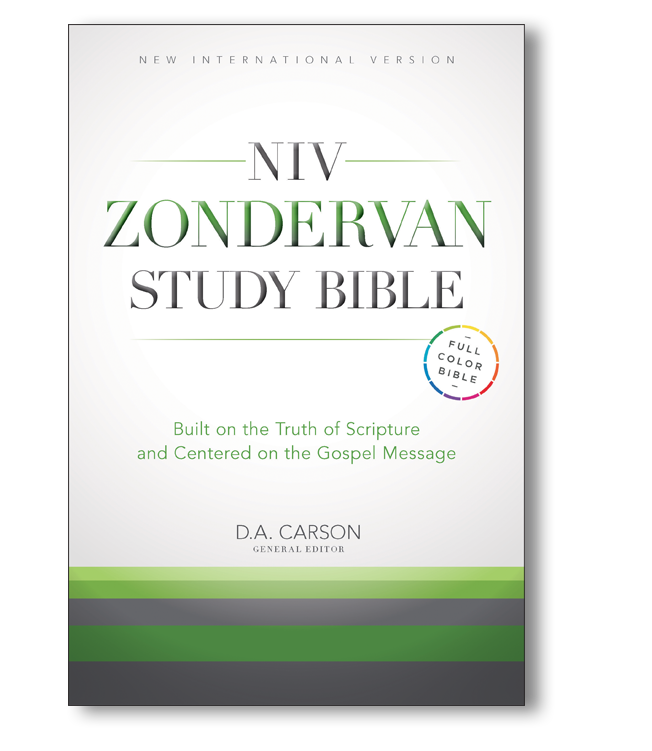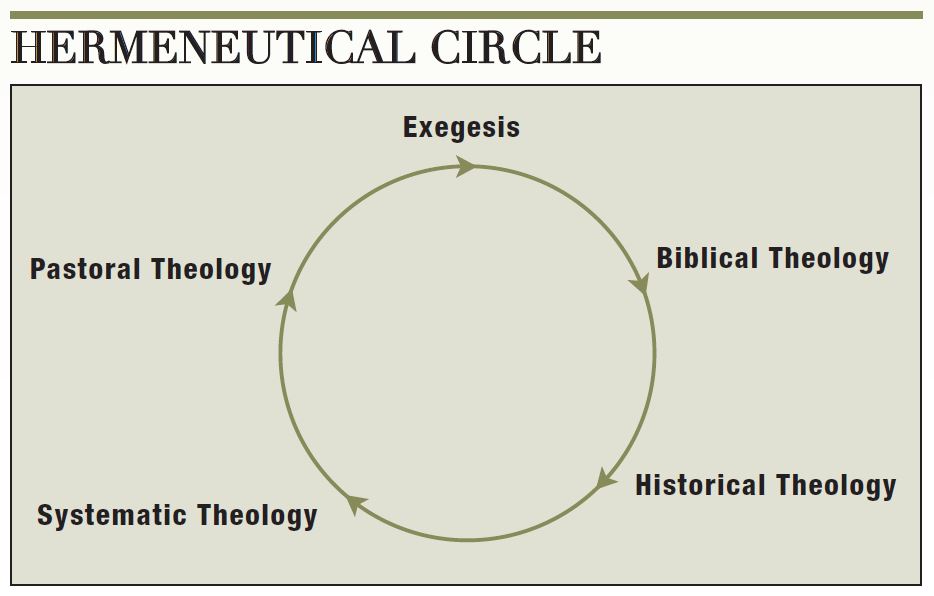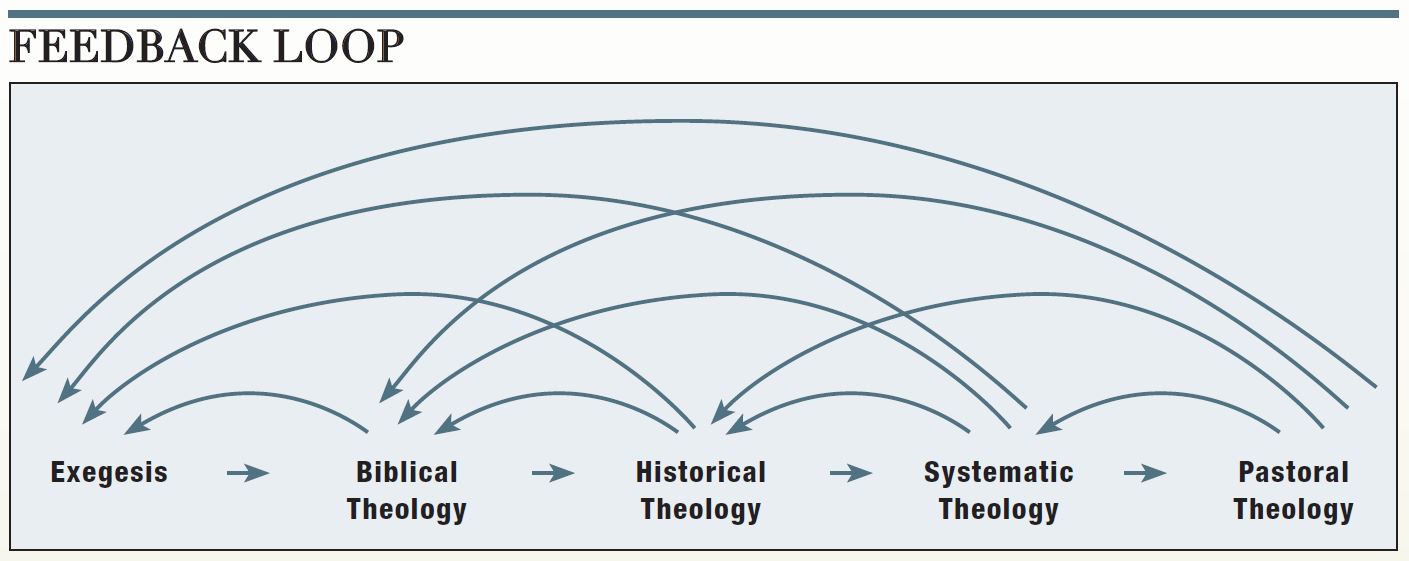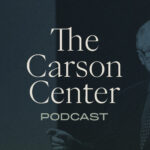Taken from the NIV Zondervan Study Bible, general editor, D. A. Carson. Copyright © 2015. Used by permission of Zondervan. In 2018, this resource was republished under the title, NIV Biblical Theology Study Bible.
It’s been said that the Bible is like a body of water in which a child may wade and an elephant may swim. The youngest Christian can read the Bible with profit, for the Bible’s basic message is simple. But we can never exhaust its depth. After decades of intense study, the most senior Bible scholars find that they’ve barely scratched the surface. Although we cannot know anything with the perfection of God’s knowledge (his knowledge is absolutely exhaustive!), yet because God has disclosed things, we can know those things truly.
Trying to make sense of parts of the Bible and of the Bible as a whole can be challenging. What kind of study should be involved when any serious reader of the Bible tries to make sense of the Bible as a whole? Appropriate study involves several basic interdependent disciplines, of which five are mentioned here: careful reading, biblical theology (BT), historical theology (HT), systematic theology (ST), and pastoral theology (PT). What follows looks at each of these individually and shows how they interrelate—and how they are more than merely intellectual exercises.
Careful Reading
“Exegesis” is the word often used for careful reading. Exegesis answers the questions, “What does this text actually say?” and “What did the author mean by what he said?” We discover this by applying sound principles of interpretation to the Bible.
Fundamental to reading the Bible well is good reading. Good readers pay careful attention to words and their meanings and to the ways sentences, paragraphs, and longer units are put together. They observe that the Bible is a book that includes many different styles of literature—stories, laws, proverbs, poetry, prophecy, history, parables, letters, apocalyptic, and much more. Good readers follow the flow of texts. For example, while it is always worth meditating on individual words and phrases, the most important factor in determining what a word means is how the author uses that word in a specific context.
One of the best signs of good exegesis is asking thoughtful questions that drive us to “listen” attentively to what the Bible says. As we read the text again and again, these questions are progressively honed, sharpened, corrected, or discarded.
Biblical Theology
BT answers the question, “How has God revealed his word historically and organically?” BT studies the theology of individual biblical books (e.g., Isaiah, the Gospel of John), of select collections within the Bible (e.g., the Pentateuch, wisdom literature, the Gospels, Paul’s letters, John’s writings), and then traces out themes as they develop across time within the canon (e.g., the way the theme of the temple develops, in several directions, to fill out a “whole Bible” theology of the temple). At least four priorities are essential:
1. Read the Bible progressively as a historically developing collection of documents. God did not provide his people with all of the Bible at once. There is a progression to his revelation, and to read the whole back into some early part may seriously distort that part by obscuring its true significance in the flow of redemptive history. This requires not only organizing the Bible’s historical material into its chronological sequence but also trying to understand the theological nature of the sequence.
2. Presuppose that the Bible is coherent. The Bible has many human authors but one divine Author, and he never contradicts himself. BT uncovers and articulates the unity of all the biblical texts taken together.
3. Work inductively from the text—from individual books and from themes that run through the Bible as a whole. Although readers can never entirely divorce themselves from their own backgrounds, students of BT recognize that their subject matter is exclusively the Bible. They therefore try to use categories and pursue agendas that the text itself sets.
4. Make theological connections within the entire Bible that the Bible itself authorizes. One way to do this is to trace the trajectory of themes straight through the Bible. (That’s what the articles in the NIV Zondervan Study Bible do.)
BT often focuses on the turning points in the Bible’s storyline, and its most pivotal concern is tied to how the New Testament uses the Old Testament, observing how later Scripture writers refer to earlier ones.
Historical Theology
HT answers the questions, “How have people in the past understood the Bible? What have Christians thought about exegesis and theology?” and, more specifically, “How has Christian doctrine developed over the centuries, especially in response to false teachings?” HT is concerned primarily with opinions in periods earlier than our own. But we may also include under this heading the importance of reading the Bible globally—that is, finding out how believers in some other parts of the world read the text. That does not mean they (or we!) are necessarily right; rather, it means we recognize that all of us have a great deal to learn.
Carefully studying the history of interpretation is one of the greatest helps in freeing us from unwitting slavery to our biases. It induces humility, clears our minds of unwarranted assumptions, exposes faulty interpretations that others have long since (and rightly) dismissed, and reminds us that responsibly interpreting the Bible must never be a solitary task.
Carefully studying the history of interpretation is one of the greatest helps in freeing us from unwitting slavery to our biases.
Systematic Theology
ST answers the question, “What does the whole Bible teach about certain topics?” or put another way, “What is true about God and his universe?”
At the risk of stating the obvious, ST is systematic: it is organized on principles of logic, order, and need. It is concerned with how the whole Bible logically coheres in systems of thought. It often organizes truth under headings such as the doctrines of God (theology proper), the Bible (bibliology), humans (anthropology), sin (hamartiology), Christ (Christology), the Holy Spirit (Pneumatology), salvation (soteriology), the church (ecclesiology), and the end times (eschatology). ST is generally framed so as to interact with and address the contemporary world. Even systematic theologians who cherish the narrative of Scripture and make much of the varied ways the Bible addresses its readers end up with highly ordered structures, sometimes calling them “theodramas.”
The Bible’s unity makes ST not only possible but necessary. The biblical data must control ST; however, ST must in turn challenge alternative worldviews. Sometimes it’s especially important not to “go beyond what is written,” for some Christian truths include within their sweep substantial areas of unknown things. For instance, there are important things we do not know about Jesus’s incarnation, about the Trinity, and about God’s sovereignty and human responsibility. To pretend we know more than we do generates shoddy ST that can prove misleading and dangerous. A large part of orthodoxy resides in listening carefully and humbly to all of Scripture and then properly relating passage with passage, truth with truth.
Everyone holds to some sort of ST. The quality of ST is based on its foundational data, constructive methods, principles for excluding certain information, appropriately expressive language, and logical, accurate conclusions.
Pastoral Theology
PT answers the question, “How should humans respond to God’s revelation?” Sometimes that is spelled out by Scripture itself; other times it builds on inferences of what Scripture says. PT practically applies the other four disciplines—so much so that the other disciplines are in danger of being sterile and even dishonoring to God unless tied in some sense to the responses he rightly demands of us. PT may well address such diverse domains as culture, ethics, evangelism, marriage and family, money, the cure of souls, politics, worship, and much more.
The other disciplines are in danger of being sterile and even dishonoring to God unless tied in some sense to the responses he rightly demands of us.
Literary Stuctures
Before we reflect on the way these various approaches to theology interact with one another, something must be said about the literary structures of the Bible. Just as the Bible is not cast as a systematic theology, with separate topical chapters on “God,” “Human Beings,” “Sin,” and so on, so also it is not cast as a series of books that march in tight order through history, each book taking up the story where the previous one stopped.
Some of the different literary genres—i.e., kinds of writing—that make up the Bible are introduced [in this study Bible] in articles such as “Introduction to the Historical Books,” “Introduction to the Wisdom and Lyrical Books,” and “Introduction to the Letters.” When we look more closely, we find in the pages of the Bible literary genres as diverse as genealogies, parables, laments, confessions, psalms of praise, divine utterances from God, beatitudes, discourse, narrative, government documents and decrees, and even a fable. (A fable is a story without human characters but where animals or trees or other objects represent human beings. See Judges 9:7–15).
God displays his providential wisdom in providing us with a Bible made up of all these literary genres, and more. The diversity constitutes a great advantage, for each genre has a slightly different way of appealing to us, of making its impact on us. Together they do even more than instruct our minds: they fire our imaginations, prompt us to meditate, call up mental pictures, invite us to memorize, appeal to our emotions, shame us when our thoughts or actions are tawdry and unworthy, and make our spirits leap for joy. So while we work through the ways in which exegesis is (for example) tied to BT and to ST, we must always remember that God in his perfect wisdom gave us the fundamental texts, the books of the Bible, in spectacularly diverse forms. Nothing about Bible study is boring or mechanical. Here we come into contact with the instructing, evocative, creative, incredibly rich mind of God.
Nothing about Bible study is boring or mechanical. Here we come into contact with the instructing, evocative, creative, incredibly rich mind of God.
Interrelationships

Some might think it convenient if we could order these disciplines along a straight line: Exegesis→BT→[HT]→ST→PT. (The brackets around HT suggest that HT directly contributes to the development from BT to ST and PT but is not itself a part of that line.) But this neat paradigm is naïve because no exegesis is ever done in a vacuum. Before we ever start doing exegesis, we already have a ST framework that influences our exegesis. So are we locked into a hermeneutical circle?
No; there is a better way. We might diagram it as a feedback loop instead of a static circle.
 In other words, there are always
feedback loops—information loops
that go back and reshape how one does
any exegesis or theology. The loops
should not take over the final voice,
but they shape the process whether one
likes it or not. It’s absurd to deny that
one’s ST does not affect one’s exegesis.
But the line of final control is the straight line from exegesis right through BT and HT to ST and PT. The final authority is the Bible and the Bible alone.
In other words, there are always
feedback loops—information loops
that go back and reshape how one does
any exegesis or theology. The loops
should not take over the final voice,
but they shape the process whether one
likes it or not. It’s absurd to deny that
one’s ST does not affect one’s exegesis.
But the line of final control is the straight line from exegesis right through BT and HT to ST and PT. The final authority is the Bible and the Bible alone.
Exegesis and Biblical Theology
BT mediates how exegesis influences ST, partly because it helps one remember that there is promise and fulfillment, type and antitype, development, organic growth, anticipation and consummation. The overlap between exegesis and BT is the most striking among the theological disciplines: both are concerned to understand texts, and BT is impossible without exegesis. Exegesis tends to focus on analysis and BT on synthesis. BT reflects on the results of exegesis in the light of individual books and in the developing stream of the narrative of the whole Bible. Exegesis controls BT, and BT influences exegesis.
Exegesis and Historical Theology
The ancient creeds and the history of exegesis and of theology are invaluable, but they do not have the ultimate authority of the Bible itself. Nevertheless, without HT exegesis is likely to degenerate into obscure debates far too tightly tethered to 21st-century agendas. Responsible exegesis wrestles with earlier Christian exegesis and theology.
It is possible, however, to become so expert in secondary opinions that one never ponders the text of the Bible itself. Reading the history of interpretation must never usurp the place of reading the Bible.
Exegesis and Systematic Theology
Some think that their exegesis neutrally and objectively discovers the text’s meaning and that they build their ST on such discoveries. In reality, ST profoundly influences one’s exegesis. Without realizing it, many people develop their own lists of favorite passages of the Bible that then become their controlling grid for interpreting the rest of the Bible; to a large degree this accounts for conflicting exegesis among Christians. This problem may develop in at least two ways.
1. A church tradition may unwittingly overemphasize certain biblical truths at the expense of others, subordinating or even explaining away passages that do not easily “fit” the slightly distorted structure that results. For example, how one understands justification in Galatians may control how one understands justification everywhere else in the NT.
2. A church tradition may self-consciously adopt a certain structure by which to integrate all the books of the Bible with the result that they automatically classify and explain some passages and themes artificially or too narrowly. Even worse is using parts of the Bible to support one’s ST without worrying very much about how the whole Bible fits together.
Without realizing it, many people develop their own lists of favorite passages of the Bible that then become their controlling grid for interpreting the rest of the Bible.
Historical Theology and Systematic Theology
When studying what the Bible teaches about a particular subject (ST), one must integrate HT. In some measure, ST deals with HT’s categories, but ST’s priorities and agenda ideally address the contemporary age at the most critical junctures.
Biblical Theology and Historical Theology
Both BT and HT are aware of the passage of time in their respective disciplines: BT focuses on the time during which the biblical documents were written and collected, while HT focuses on the study of the Bible from the time it was completed. Put otherwise, BT focuses on the Bible, while HT focuses on what significant figures have believed about the Bible. BT functions best when interacting with HT.
Biblical Theology and Systematic Theology
BT is historical and organic; ST is relatively ahistorical and universal. Unlike BT, which is deeply committed to working inductively from the biblical text so that the text itself sets the agenda, ST may (legitimately) be at a second or third or fourth order removed from Scripture as it engages, say, philosophical and scientific questions that the biblical texts themselves do not directly raise. But ST is the most comprehensive of the various theological disciplines.
Exegesis and BT have an advantage over ST because the Bible aligns more immediately with their agendas. ST has an advantage over exegesis and BT because it drives hard toward holistic integration.
ST tends to be a little further removed from the biblical text than does BT, but ST is a little closer to cultural engagement. In some ways, BT is a kind of bridge discipline between exegesis and ST because it overlaps with them, enabling them to hear each other a little better. In some ways, ST is a culminating discipline because it attempts to form and transform one’s worldview. BT is important today because the gospel is virtually incoherent unless people understand the Bible’s storyline. ST is important today because, rightly undertaken, it brings clarity and depth to our understanding of what the Bible is about.
Pastoral Theology and the Other Disciplines
PT applies exegesis, BT, HT, and ST to help people glorify God by living wisely with a biblical worldview. It answers the practical question, “How then should we live?”
Although it’s possible to treat pastoral theology as an independent discipline, it’s wiser to recognize that the Bible was never given to stir up merely or exclusively intellectual questions. It was given to transform people’s lives; it was given to be practical. The notion of impractical theology—theological study that is unconcerned with repentance, faith, obedience, conformity to Christ, and joy in the Lord—hovers somewhere between the ridiculous and the blasphemous.
The notion of impractical theology—theological study that is unconcerned with repentance, faith, obedience, conformity to Christ, and joy in the Lord—hovers somewhere between the ridiculous and the blasphemous.
We may so quickly pursue “what the Bible means to me” (greatly emphasizing “to me”) that we completely ignore the distance between ourselves and the text and compromise the Bible’s historical specificity and thus the nature of God’s revelation. It is far better to read each part of the Scripture, think it through on its own terms, discern its contribution to the whole Bible, and then ask how such truth applies to us and our church and society.
Since God created the universe, we are accountable to him, and he has authoritatively spoken in the Bible. Even if we earnestly try to understand God’s gracious self-disclosure on its own terms, that is insufficient if we do not respond to God as he has disclosed himself. Interpreters are inseparable from the interpretive process, and our attitude toward the text is important. Desiring merely to master the text is not enough; we must desire to be mastered by it. For one day we will give an account to the one who says, “These are the ones I look on with favor: those who are humble and and contrite in spirit, and who tremble at my word” (Isa. 66:2).
Related:
- The Story of the Bible: How the Good News About Jesus Is Essential by Tim Keller
- The Sin-Crushing King and Our Destined-to-Die Conqueror by Kevin DeYoung
- Don Carson on the NIV Zondervan Study Bible by Ivan Mesa
Download your free Christmas playlist by TGC editor Brett McCracken!
 It’s that time of year, when the world falls in love—with Christmas music! If you’re ready to immerse yourself in the sounds of the season, we’ve got a brand-new playlist for you. The Gospel Coalition’s free 2025 Christmas playlist is full of joyful, festive, and nostalgic songs to help you celebrate the sweetness of this sacred season.
It’s that time of year, when the world falls in love—with Christmas music! If you’re ready to immerse yourself in the sounds of the season, we’ve got a brand-new playlist for you. The Gospel Coalition’s free 2025 Christmas playlist is full of joyful, festive, and nostalgic songs to help you celebrate the sweetness of this sacred season.
The 75 songs on this playlist are all recordings from at least 20 years ago—most of them from further back in the 1950s and 1960s. Each song has been thoughtfully selected by TGC Arts & Culture Editor Brett McCracken to cultivate a fun but meaningful mix of vintage Christmas vibes.
To start listening to this free resource, simply click below to receive your link to the private playlist on Spotify or Apple Music.































